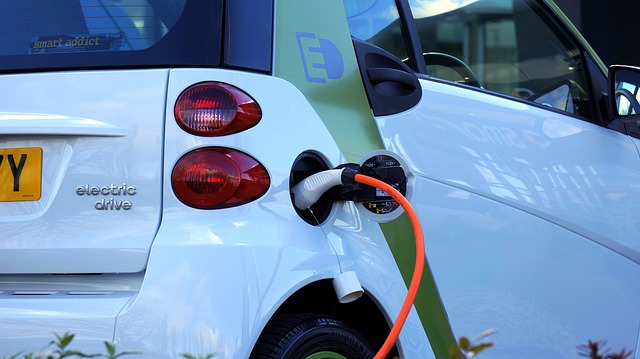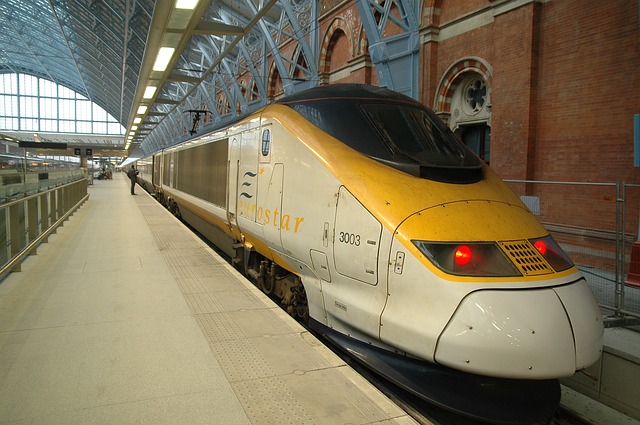The UK could cut greenhouse gas emissions to nearly zero by 2050 and lead the way in tackling global warming, according to a new report released today by the government’s independent adviser on climate change. Environmental economist Professor Liz Robinson looks at the changes that we can make to meet this goal – many of which will have little effect on our current lifestyles.

When we hear presidents or radio presenters asking if we all need to stop flying tomorrow, stop driving our cars tomorrow, or become vegan overnight, it is all somewhat frustrating and tedious. Achieving “net zero” emissions in the next few decades is an exciting and realistic prospect, an opportunity, not an inconvenience, and we can all be part of the solution.
For many of us, a rapid transition to net-zero greenhouse gas emissions in the UK would bring with it a higher quality of life through health benefits and lifestyle choices. For some, it would bring new job opportunities. Achieving what is being referred to as ‘net zero’ should be seen as an exciting opportunity, and a feasible one.
What we can do?
Some of the climate-friendly actions that most of us can take quite easily will result in us being better off financially and healthier; other actions might require us to tweak our lifestyles a little.
At the individual household level, there are some things we can do to help mitigate climate change that do not actually cost us anything, or very little and would barely make a dent in our lifestyle – so why aren’t we doing them? For example: switching to an electricity supplier that only supplies from renewable resources; or saying no to peat-based garden compost (peat bogs lock greenhouse gases away when intact but releases CO2 when damaged).

There are other actions that might cost us in time or money, but which would still be feasible for many households, such as taking the train instead of flying where there is a direct route. And for those of us who can afford to, we should be replacing a second car, or even the family car, with an electric one.
Second-hand electric cars are now available and affordable and offer substantial savings in running costs. Of course there is some inconvenience with regards to charging them. The more of us who can buy electric cars today, the larger second hand market of more affordable electric cars there will be in the future.
Lessons from the past
There are also actions that, even though they might save us money and benefit our health, tend to be more difficult for most of us to adopt – such as reducing our consumption of red meat and dairy; and using public transport more.

There is plenty of evidence from the past that rapid change is possible and with hindsight is seen as beneficial, even if we cannot imagine it beforehand, but requires government intervention.
When I was a child, you walked with one eye scanning the ground to be sure you did not step in dog poop, smoking indoors was the norm, and there were no seat belts in the back seats of cars. Most of us are happy that legislation was passed to change these norms, even if, at the time, it might have seemed like an infringement of our freedoms or an inconvenience or an additional cost that we did not want to incur.
Small nudges, big wins
More recently, the government has introduced small financial “nudges” to encourage us to use fewer plastic bags when shopping, through a 5p levy. Similar nudges have been called for to reduce our use of disposable coffee cups.
Many of us save for a pension, consuming less today so that we have more when we retire. When the government felt that we were not saving enough for our pensions, it introduced auto-enrolment to increase pensions savings. The principle behind investing in a net-zero carbon economy is not much different.
What should our government do?
The current starting point for any government action is a good one. According to a recent poll by the Grantham Institute on Climate Change, a majority of the UK population (64%) wants the government to act on climate change and reduce the UK’s annual emissions to zero “in the next few decades”.
Moreover, it is increasingly clear that the costs of not doing something now will be much greater than if we do act now. Of course where there are costs involved, we need to think hard about who bears them, both with regards to the current generation, and across generations.
There is clearly a role for the government to help us make better choices. It can lead by example, choosing renewable energy for all public/government buildings. It can make it easier for us to take climate-friendly actions, such as providing electric car chargers across the country; or ensuring that public transport is more affordable and more convenient than driving petrol and diesel cars.
It can introduce nudges and regulations that help to create new social norms, whether with regards to avoiding single-use plastic or disposable coffee cups. It can make it preferable to take the train than to fly, through a combination of taxes and subsidies linked to the environmental cost of each activity.

There are other actions we need to take that would cost us quite a lot in terms of lifestyle for which we probably need stronger government intervention.
Flying is a clear example. I still struggle to understand how I could fly to the COP24 climate change conference in Poland for £10 but train journeys in the UK tend to be impossibly expensive. Greenpeace has suggested a ‘frequent flyer’ tax which would progressively increase for each additional flight that individuals take in a given year.
More generally, higher taxes can be imposed on the most polluting activities, providing scope to reduce taxes elsewhere, increase subsidies for environmentally friendly activities (the so-called ‘double dividend’), and provide transfers for poorer households. More generally, the government needs to ensure that those on low incomes are better off as a result of climate actions, not worse off.
Many policies need to be announced ahead of time and phased in so people can plan accordingly. For example, with regards to petrol and diesel cars, the emphasis should be on creating incentives (through a combination of carrots and sticks) for people to replace their petrol and diesel cars with electric cars, rather than more heavily penalising those existing owners.
Overall, with a little help from the government, there are plenty of not particularly difficult or controversial things that we as individuals can do, many of which will make us healthier, and might save us money.
It is not as hard as we might think to achieve net zero.
Elizabeth Robinson is Professor of Environmental Economics at the University of Reading, specialising in the management of natural resources in low and middle income countries. She coordinates the working group on exposure and vulnerability of people to climate change for the Lancet Countdown, which tracks the connections between public health and climate change. She is also a member of the Lancet Countdown board.
